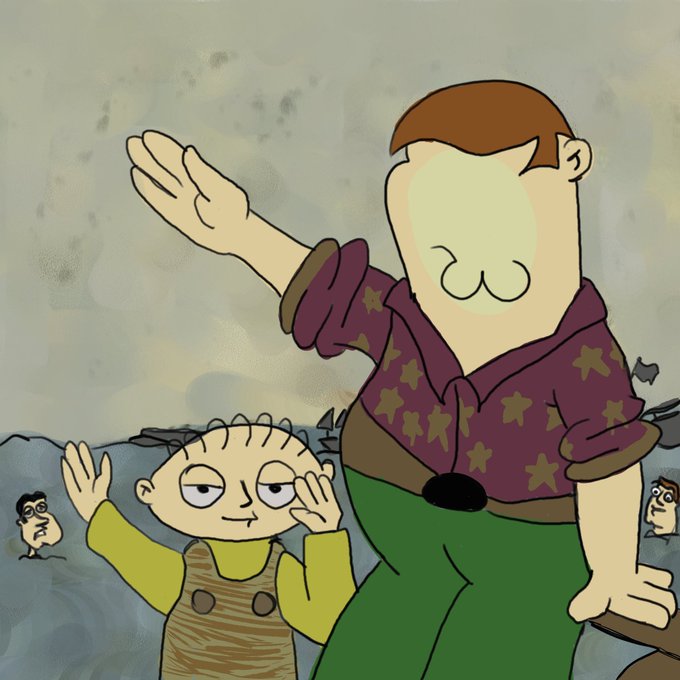Is this what libertarians mean by "basic economics". Step aside, Marx, this :galaxy-brain: channel will blow you out of the water!
That video claims that after the war North Korea "had all the advantages" and that South Korea was all on its own lmao.
For some time, North Korea did have a higher standard of living than South Korea, in spite of the international isolation and near obliteration they suffered under the war.
Before the post-WWII division of Korea, the North only had about 18% of the total commerce and about a third of the light industry and agriculture of the peninsula. Despite the destruction of the North by American forces during the Korean War, the DPRK had managed to achieve higher GNP per capita than South Korea until the mid-1970s. The North Korean economy in the mid-1960s was actually praised even by western Keynesian economists like Joan Robinson:
Eleven years ago in Pyonygang there was not one stone standing upon another. (They reckon that one bomb, of a ton or more, was dropped per head of population.) Now a modern city of a million inhabitants stands on two sides of the wide river, with broad tree-lined streets of five-story blocks, public buildings, a stadium, theaters (one underground surviving from the war) and a super-de luxe hotel. The industrial sector comprises a number of up-to-date textile mills and a textile machinery plant. The wide sweep of the river and little tree-clad hills preserved as parks provide agreeable vistas. There are some patches of small gray and white houses hastily built from rubble, but even there the lanes are clean, and light and water are laid on. A city without slums.
There is already universal education […] There are numerous nursery schools and creches, all without charge. There is a complete system of social security […] The medical service is free. […] Workers receive holidays with pay.
All the economic miracles of the postwar world are put in the shade by these achievements
The DPRK later encountered a number of severe setbacks from increased military pressure from the US that caused the North Koreans to devote up to 25% of its GNP to its military (which is extremely high), crippling sanctions, the Sino-Soviet split that strained its economic relations with both China and the Soviet Union, excessive unbalanced growth with an overemphasis on heavy industry and underinvestment in light industry and consumer goods, bottlenecks in some sectors from mistakes in planning, a lack of hard currencies, and devastating droughts and floods hurting agriculture. The loss of the Soviet Union and the rest of the Soviet-bloc left the DPRK even more extremely economically isolated and vulnerable. This ultimately led to its economic devastation in the 90s.
South Korea's economic rise actually relied heavily on a state-led model (which ironically contradicts the neoliberal dogma of the Economics Explained channel) of 5-year plans, protectionism, industrial policies, and state-owned enterprises (like Pohang Steel Company) as well as receiving large amounts of foreign investment, technology, and aid from the West and its allies.
Lefties need to make channels like "economics explained" that have the same just the facts presentation and then cite exclusively leftists.
If you think that's bad, they have a video called "Is wealth inequality actually a problem?"
And the fact that it isn't just a two second long video saying "yes" should tell you everything
It's a predictably dumb video. Basically just tries to make the point that you need inequality to drive innovation and progress and that it's better to have a society of great inequality where even the poor have relatively high living standards than a society where everyone is living in a cave in equal conditions. At least one of the top comments rips on it for not talking about the power imbalance it creates, especially in a supposed democracy where everyone is theoretically supposed to have an equal voice.
In May 1951, an international fact finding team from East Germany, West Germany, China, and the Netherlands stated, "The members, in the whole course of their journey, did not see one town that had not been destroyed, and there were very few undamaged villages."
On 25 June 1951, General O'Donnell, commander of the Far Eastern Air Force Bomber Command, testified in answer to a question from Senator John C. Stennis ("...North Korea has been virtually destroyed, hasn't it?): "Oh, yes; ... I would say that the entire, almost the entire Korean Peninsula is just a terrible mess. Everything is destroyed. There is nothing standing worthy of the name ... Just before the Chinese came in we were grounded. There were no more targets in Korea."
In August 1951, war correspondent Tibor Meráy stated that he had witnessed "a complete devastation between the Yalu River and the capital." He said that there were "no more cities in North Korea." He added, "My impression was that I am traveling on the moon because there was only devastation—every city was a collection of chimneys."
The bombing campaign destroyed almost every substantial building in North Korea. The war's highest-ranking U.S. POW, U.S. Major General William F. Dean, reported that the majority of North Korean cities and villages he saw were either rubble or snow-covered wasteland. North Korean factories, schools, hospitals, and government offices were forced to move underground. In November 1950, the North Korean leadership instructed the population to build dugouts and mud huts and to dig tunnels, in order to solve the acute housing problem.
USAF General Curtis LeMay commented, "We went over there and fought the war and eventually burned down every town in North Korea anyway, some way or another, and some in South Korea, too." Pyongyang, which saw 75 percent of its area destroyed, was so devastated that bombing was halted as there were no longer any worthy targets. By the end of the campaign, US bombers had difficulty in finding targets and were reduced to bombing footbridges or jettisoning their bombs into the sea.
"lol but your economy though"
worse part is that he never actually explains anything, like all neoliberal shit is just a soup of buzzwords, and academic concepts presented in such a way that you think you are learning, but it's only making you feel more secured in you ideology
seriously, try to see carefully, visualpolitik , anything by the green brothers, it's just made to feel like you are learning, but can you even cite the main points of a visualpolitik video? yeah me neither
I subbed years ago just because I wanted a basic understanding of economics, and its always nice hearing someone who isn't a yank on YouTube.
I'm so glad I'm not that daft anymore. EE is pure propaganda.
The clickbait is too good sometimes, I've watched far more of this person than I'd ever have agreed to tbh
"The pathetic economy of North Korea"
Oh yeah, I'm sure I'm in for a professional take here.
Look at them COMMIES, they should have adopted the IMMORTAL SCIENCE OF NEOLIBERALISM brought to you (by force) by MILTON FRIEDMANN
That title of the channel makes me think it's a libertarian







